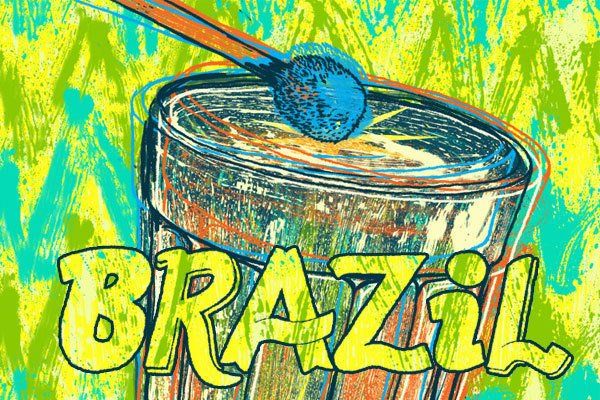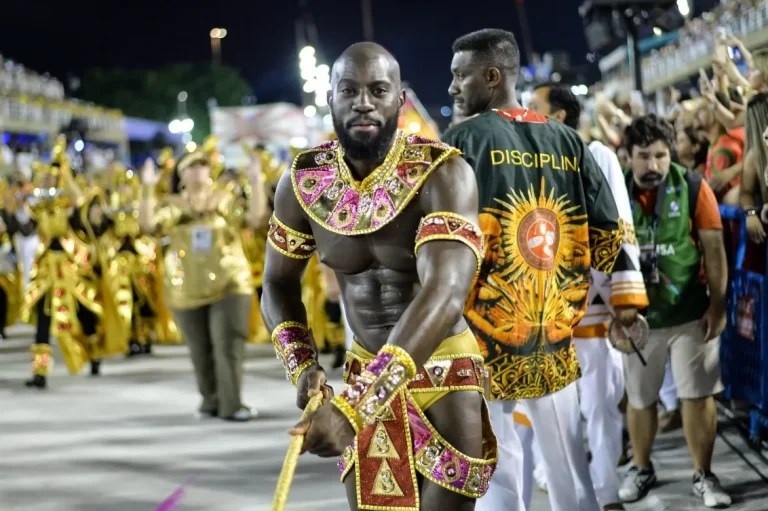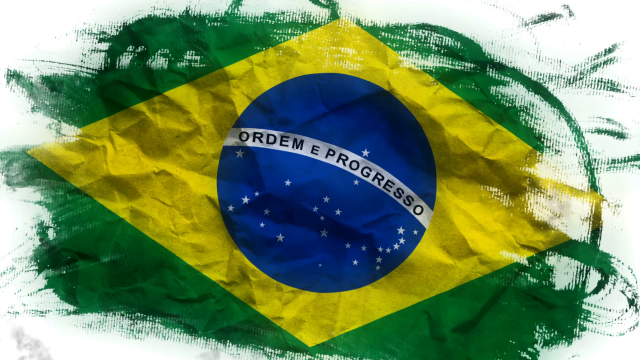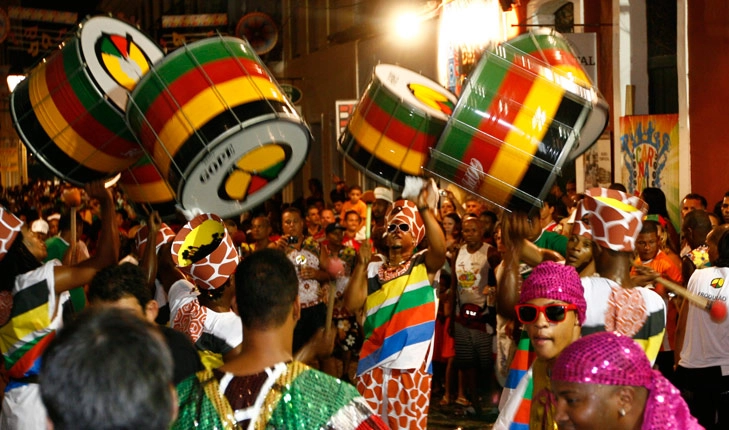

Related
Twice a week we still get Yo! MTV Raps—even though, according to recent MTV research, it has a limited and segmented audience. The program features a guest appearance by a local rapper and shows two or three locally produced videos; the rest consists of videos/news from the North American Yo!. MTV only gets about two to three new Brazilian rap videos in a six-month period because most local rap acts—at least the ones dedicated to keeping it real—are on independent labels, and it’s almost impossible to get enough money together to produce a video.
But a new era is dawning: in 1994, Os Racionais MCs had an explosive hit—not their first—in the bairros and favelas with “Fim de Semana no Parque” (Weekend in the park), from their third CD, Raio X Brasil (X ray Brazil), released in late 1993 by the independent São Paulo label Zimbabwe. The most requested track on several major São Paulo radio stations for weeks, it represented a real breakthrough for Brazilian rap. Even radio programmers afraid of the impact this seven-minute-long reality check into the lives of the poor and miserable majority would have on their white, middle-class listeners couldn’t avoid playing it.
Though Os Racionais MCs were never granted airplay before “Fim de Semana no Parque,” they have an enormous following in the outskirts and favelas of São Paulo’s metropolitan area (population 16 million plus)—a following with no buying power (the average monthly wage is $100; a CD costs around $20). Os Racionais made their name by performing relentlessly in the favelas, rapping about drug-trafficking, racism, and government corruption. Hard-hitting street beats heavy on drums and bass—inspired by old-school North American rappers like Run-DMC and Public Enemy—back samples and loops of Brazilian popular music. This year, they’re wanted by the police (after a car accident in which one person died and seven were injured), the public, and, of late, their record label. Nine months late with their ’95 release, the band are nowhere to be found in their bairro, Capão Redondo—one of the most violent areas in São Paulo—where they’re hiding out waiting for news from Dr. Dre.
The hardcore/rap act from Rio, Planet Hemp, has gotten heavy MTV rotation this year with “Legalize Já” (Legalize now), released by Sony Brazil. For saying it like it is, Cypress Hill–style, the video’s been relegated to the after 11:00 P.M. slot. With a more trenchant social message, but with no video to go with it, GOG hit home with his second release Dia-a-Dia da Periferia (Day-to-day life in the periphery, 1995), produced by his own label Só Balanço and filled with old-school references. GOG hails from one of those bleak satellite cities surrounding Brasilia, crammed with the people who came to build the new capital in the ’50s but were found unworthy of inhabiting this Modernist utopia when it was officially completed in 1960. Thirty years later, the first generation to grow up in neighborhoods with names like Sobradinho (Little mansions) are giving voice to their experiences. GOG’s deadly “Assasinos Sociais” (Social assassins) proves that he might just be the best poet of them all. In February, he finished his third solo CD, tentatively entitled Prepare Se (Get ready), scheduled for May release.
And the beat goes on. Last year, the small São Paulo–based Atelier Studio recorded 18 rap acts, the female-led RPW being the most promising—with their RPW está na área (something like RPW is in the house) produced by old-school veteran Fábio Macari, who also produced GOG’s latest. However, their CD (completed last year by the independent label Spotlight) still hasn’t been released due to financial difficulties. It’s been rescheduled—a third time—for May. Nevertheless, the rap “elite” keeps growing: the Chic Show sound system alone moves around 20,000 pairs of feet each weekend in the periferia and bairros of greater São Paulo with a funky mix of Brazilian and North American rap, hip-hop, R&B, and the occasional samba.
All against a backdrop that is decidedly bleak. This year the homicide rate in Rio during Carnival was up 32 percent, while in greater São Paulo it rose by 43 percent—to achieve a record high. Rio’s favelas remain under siege as local drug lords feeding off a never-ending supply of North American arms stage daily shoot-outs. Tired of this hostile environment and the complete lack of government action in the periferia and the bairros, the message of most Brazilian rappers is, Let’s do it ourselves, let’s cross over, and let’s work for peace. Brazilian rappers and hip-hop culture are where North American rappers were in the mid ’80s: struggling to broadcast their hard-edged social message beyond the borders of their own neighborhoods.
Jan Field cofounded the ’80s Brazilian arts and culture magazine Caos, and writes regularly for the newspaper Jornal da Tarde and Showbizz magazine.







